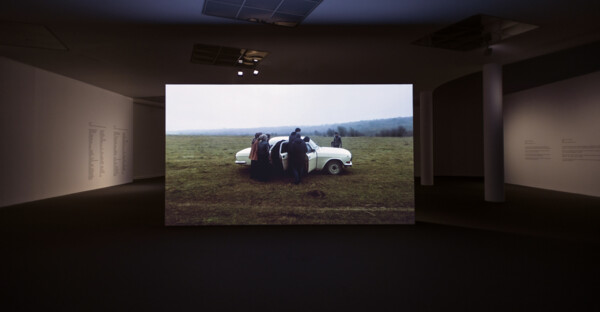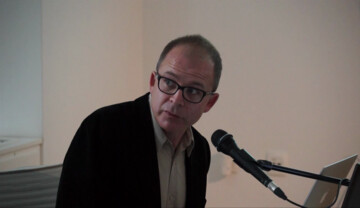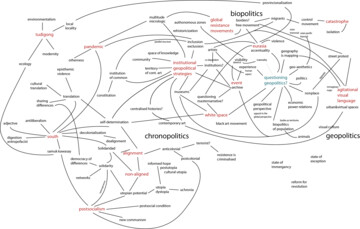Contesting geopolitics
The very notion of “geopolitics” needs to be contested. It is both too abstract (too much a bird’s-eye view, offering too many excuses to ignore the conditions that people on this earth live under) and too concrete (too ready to identify the political with “the earth” in too direct and therefore too comfortable ways). It invariably insists that the map is the territory. And that is only one reason why it is cruel.
In fact, geopolitics is institutionalised cruelty, because it is fetishised distance from lived reality, and today’s geopolitical pundit is not much better than the “armchair strategist” of the Belle Époque. If you are in doubt, just check any of the entries in the “geopolitical diary” available (for a fee, obviously) from stratfor.com, a US company with strong links to the “intelligence community”. This passage, chosen almost at random, was published on 8 September 2015:
Syria’s import on the global geopolitical scale is not because of large numbers of → migrants or headlines about the various battles and alliances shifting in the battle space every day. Syria and the Levant in general have always derived their importance from their status as a key area of competition between the world’s great powers, as the United States and Russia are demonstrating.[1]
Geopolitics as a genre brutalises us as readers and writers. Yet it may be an irresistible temptation, simply because we find it so interesting. And since we have been summoned to Ljubljana to declare our different positions on this inherently cynical topic, we might as well disclose the self-interest that shapes our → interest.
Eurasia and contemporary art
M HKA is the Flemish Government’s museum of contemporary art, so we have a special responsibility to collect, exhibit and contextualise art “made in Flanders”. This is already geopolitics. To widen our scope, and in response to our own past initiatives, we have declared ourselves a “Eurasian” museum. This insistence on putting the regional and the local into context is also geopolitics. We continue to build a collection of contemporary art from countries that used to be Soviet Socialist Republics, and we remain committed to artists such as Jimmie Durham, who uses Eurasia as counter-poison to Europe’s hegemonic self-understanding.
Of course we know that Eurasia, as a term and a figure of thought, has been all but hijacked by those who believe that the collapse of the USSR was the worst geopolitical disaster of our time, rather than a golden opportunity to set a whole continent free. The imperial mind-frame is only very rarely challenged in Russia itself. Other successor states, notably Kazakhstan, have made Eurasia (and the even more esoteric concept of “Turania”) part of their post-socialist ideological apparatus.
When M HKA’s director Bart De Baere proposed organising this year’s Moscow Biennale around the title “Progressive Eurasia”, he was not merely juxtaposing the two terms for oxymoronic effect; he was asking us to consider each of them afresh, in the light of their forced marriage, with an eye on a future that only becomes possible if we start thinking and talking about it. In the event, the biennale is now playing out under a less explicit headline. Perhaps De Baere’s insistence on salvaging a location (the mega- or meta-continent) and a direction (forwards! upwards!) from the clutches of geopolitical cynicism was simply too illustrative of the cruder forms of “political technology” that are still very much in use.
Trubetzkoy’s Eurasianism
I have assisted in the preparations for the biennale on the sidelines, translating some short texts by Prince Nikolai Trubetzkoy (1890–1938). The Russian-born structural linguist is now best known as one of the founders of phonology, an application of the critical scientific method to the study of speech sounds. He is also remembered for his Sprachbund theory, arguing that geographic proximity and contact between languages may be more important to their development more than any “genetic” relations they might have to each other.
Trubetzkoy’s privileging of “→ friendship” over “kinship” in the ideologically fraught field of comparative linguistics and prehistory was mirrored by his many activities, throughout the 1920s, as a founding member of the “Eurasianist” movement of intellectuals exiled by revolution and civil war in Russia. The Eurasianists (among them the geographer Pyotr Savitsky, the theologian Georgiy Florovsky and the musicologist Pyotr Suvchinsky) were a somewhat mixed bunch. They tried to articulate an alternative way forward for Russia: neither Bolshevism, with its professed universal values, nor a straightforward continuation of Tsarist Imperialism, with its ever-unresolved conflict between “Europeanisation” and “Slavophilia”.
Among the redeeming features of Eurasianism (at least as reflected in Trubetzkoy’s writings) are its self-identification as a form of “futurism”, its interest in the non-Russian peoples of the empire (notably the minorities speaking Turkic, Finno-Ugrian and Paleo-Asiatic languages) and its stance against Stalinism and National Socialism.
Trubetzkoy’s Eurasianism and his “League of Languages” theory (Sprachbund alludes to Völkerbund, the German name for the interbellum League of Nations) both reflect his non-dogmatic approach to multi-national or multi-ethnic geopolitical entities (such as the never quite defunct Russian Empire) and cultural artefacts (such as the languages shared by its subjects). In fact, he preferred the term “multi-human”. In one of his many letters to Roman Jakobson, the structural linguist who was also a fellow traveller of the Eurasianist movement, Trubetzkoy wrote:
I can envisage the world consisting of several big cultures with “dialectical” variants, as it were. The difference from the European ideal lies in the fact that, first, there will still be several cultures, not one, and, second, that their dialectical variants will be brighter and freer.[2]
Plurality and complexity
Any Weltanschauung that embraces plurality and complexity is worth looking at without prejudice. In any case it is instructive to compare the tone of Trubetzkoy’s thought (self-reflective as a result of his belief in structure and method) with that George Friedman, the CEO and lead writer of stratfor.com (who recently published the book Flashpoints: The Emerging Crisis in Europe). Friedman is also a futurist, producing geopolitical forecasts that are actually worth paying for, but he very rarely relativises his own hegemonic points of view, although he does share details of his → family’s Central European history.
An interesting fact about Nikolai Trubetzkoy is that he descended from the ruling family that ensured Lithuania’s eastward expansion into today’s Belarus and Ukraine in the 14th and 15th centuries, after the eastern Slavonic territories had been weakened by the Mongol onslaught. The Grand Duchy of Lithuania was an explicitly “multi-human” state, politically dominated by pagan Lithuanians but with a mostly orthodox Ruthenian population governed in a language that was called Lithuanian but was actually an older form of Byelorussian.
The political culture of the Grand Duchy, which soon teamed up with the Kingdom of Poland in the “Commonwealth of Both Nations”, was radically distinct from that of Muscovy. No less Slavonic, but much less isolated from the institutions and cultural heritage of Western Europe. The Commonwealth existed until its third and last partition by Prussia, Austria and Russia in 1795. It was an elective monarchy with a parliament, self-governing cities and various co-existing religious communities, including Muslims and Jews.

Aslan Gaisumov, Volga, 2015. Collection M HKA, Antwerp © M HKA.
It is perhaps not entirely coincidental that Trubetzkoy, author of the most inclusive and complex version of “Eurasianism” to date, hailed from this now sunken culture that built walkable bridges between East and West. A task that Imperial Russia, in all its forms, has repeatedly taken on, with rather mixed results.





